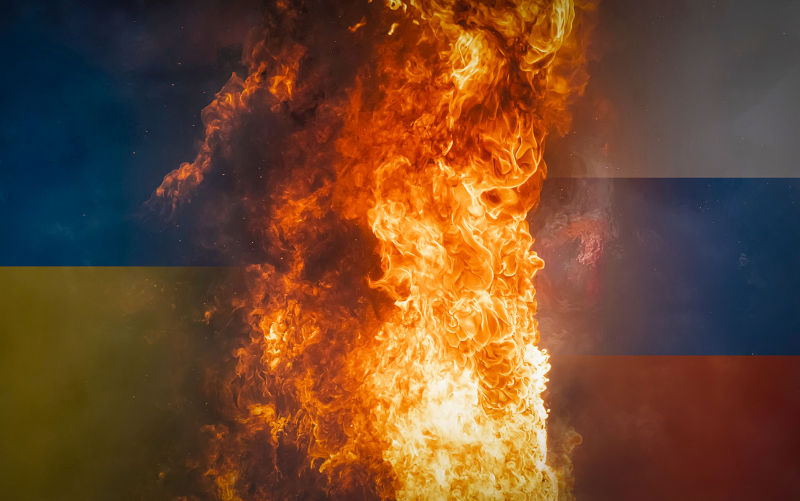From one fire into another
September 19, 2023
New Zealand academic Robert Patman advocates back peddling on confrontation with China to focus on fighting Russia, but both promise disaster.
Robert Patman, a luminary of the New Zealand foreign policy establishment, has won applause from a surprising array of political positions for his hostility to NZ becoming involved in AUKUS. These range from former Prime Minister Helen Clark, veteran anti-foreign investment activist Murray Horton, pseudonymous Labourite blogger MickeySavage (Michael Savage headed NZs first Labour government 1935-40), through to that pillar of conservative orthodoxy, Wellingtons newspaper The Dominion Post (now The Post).
Helen Clark was particularly taken by Patmans article in The Post on 3 August entitled The case for New Zealand staying on the outside of Aukus. Patman is a professor of International Relations at Otago University so is a prominent figure in NZ foreign policy discourse. However those on the Left who see him as an ally against military involvement in Americas confrontation with China have not been reading his writing carefully enough. There are all sorts of good reasons for resisting US demands to join its crusade but Patmans position is based not so much on debunking the Chinese aggression myth, the current version of the Yellow Peril of the past, but rather a nave belief in the Rules-based International Order (RBIO), antagonism towards China and a very deep hostility towards Russia.
Thus in his OpEd in The Post Patman writes:
Aukus is a trilateral security pact involving Australia, the UK and US that was established in September 2021 to defend a shared commitment to the international rules-based order in the Indo-Pacific region, and promote stability and prosperity in a region containing about 60% of the worlds population.
China was not explicitly identified as a threat at the outset, but the formation of Aukus has clearly been a response to the perceived challenge of Chinas growing assertiveness in the region and beyond.
Amongst other things, China during the last three years hassanctioned Australiafor questioning its handling of the Covid-19 pandemic,clashed with India in the Himalayas,launched regular incursions into Taiwans airspace, cracked down on the once partly autonomous region ofHong Kong, andtacitly supportedthe Putin regimes illegal invasion of Ukraine.
Most of the assertiveness in the region and beyond, it should be noted, relates not to any aggression on Chinas part but rather its long-standing objection to foreign intervention in its internal affairs (Covid, Hong Kong, Taiwan), a product of its experience of the century of humiliation, 1840s to 1949, during which foreign powers plundered China.
Patman has returned to the theme of Ukraine in a recent article entitled New Zealands strategic priority in the Indo-Pacific is not AUKUS its helping to defeat Russia in Ukraine. This is a variant of the policy of the Russophobic Neocons - Blinken, Nuland, Sullivan et al who regard China as the main enemy but see the road to Beijing passing through Moscow.
It is a strange, rambling article, with no clear explanation of why supporting the Kyiv regime would safeguard NZ, let alone help the Ukrainian people:
Given the circumstances, New Zealand should remain clear-eyed about the connections between its strategic interests in the Indo-Pacific and its support for defeating Russian expansionism.
To date, New Zealand has contributed more than NZ$70 million inhumanitarian and military aidto Ukraine. But this looks pretty modest in light of the possible fallout for the Indo-Pacific region if Putin wins any sort of victory.
Especially so, considering Ukraine is a liberal democracy that gave up its nuclear weapons in 1994 (in return for Russian recognition of its sovereignty and territorial integrity), and which shares New Zealands goal of reforming the UN Security Council.
Indeed, the best way for New Zealand to contribute to countering Chinese assertiveness in the Indo-Pacific would be to significantly increase its military support for Ukraine.
He went into more detail on his support for Zelensky in an article for the Kyiv Post entitled Liberal Hawks Versus Realist Doves: Who is Winning the Ideological War Over the Future of Ukraine?. Here he attacks the Realist (as opposed to Liberal or Neocon) position of Professor John Mearsheimer, who with Jeffrey Sachs has been a leading academic opponent of US policy:
On the one hand, many realists believe the only way out of the current conflict is a negotiated peace. That involves recognising, in the words of US political scientist John Mearsheimer, the taproot of the current crisis is NATO expansion.
The argument that NATO enlargement caused the Putin regime to attack looks unconvincing. It was not Washington but the states of Eastern Europe, historically fearful of Russian dominance, that clamoured for NATO membership.
Indeed, many neighbouring states have backed President Volodymyr Zelenskyys view that Putins invasion is part of a Russian imperial project that can be traced back to Peter the Great and which seeks to reestablish a Russian sphere of influence in Eastern Europe.
Patman predicts that With the right level of military support in 2023, Ukraine could realistically defeat Putins invading army. In reality the offensive has failed with horrendous casualties for the Ukrainian Armed Forces, Western support is slipping and the Biden administration is bringing Zelensky to Washington in the hope that he can win over Congress. By contrast, Mearsheimers prediction that NATO expansion would bring disaster to Ukraine has proven appallingly correct.
Whatever the reasons for Patmans animus against Russia and China, the fundamental flaw in his analysis is his endearment for the Rules-based International Order (RBIO). This is not international law bur code for American hegemony, and the US struggle to maintain and expand it is the root cause of the Ukraine war, and the threatened war with China. The task for countries like NZ is not to sustain it but to nudge the US towards a peaceful relinquishment of hegemony and the acceptance of multipolarity and international law. That will not be an easy panacea but it is necessary if we are to avoid global disaster.
